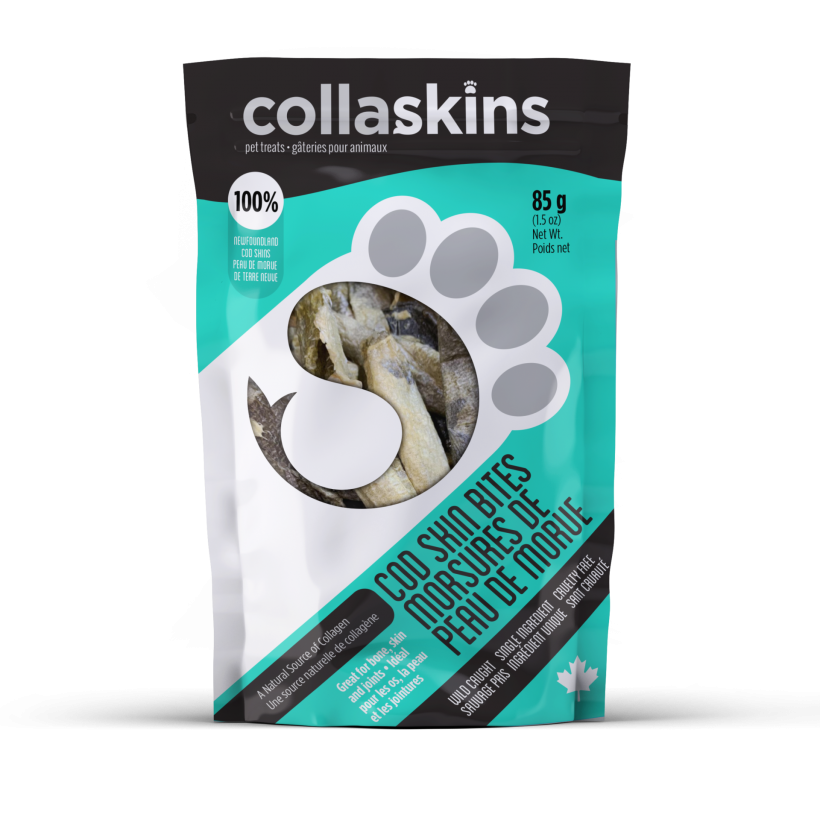Collaskins, one of a trio of interlinked St. John’s startups aiming to reduce waste from fish processing, is raising a round of pre-seed funding that it will put towards building its own plant.
Co-founders Janice Saunders and Ben Wiper spun Collaskins off from Wiper’s 3F Waste Recovery about two years ago, along with another business, North Oceans Scientific. Collaskins sells a range of fish-based pet treats, as well as collagen that can be used as an ingredient in other pet products, produced using Northern Oceans’ technology.
The reason the Main Brook, Nfld.-based company needs its own fish processing plant, Saunders and Wiper said in an interview, is to scale its operations without the logistical headache of needing to rent plant access from other operators, as it is currently doing.
“The drying process that we use generates a healthier treat,” said Saunders. “We keep the proteins and calcium intact.
“We have over 25 different products in our lineup. A lot of them are made with cod skins, but we also use herring and capelin byproduct, as well as scallop byproduct. Any seafood byproduct, we have a process to make pet treats out of it.”
Wiper created the first of the three businesses, 3F, as a consultancy in 2017. Saunders later joined to run sales, after the company pivoted to manufacturing in 2020 and began developing a diverse suite of intellectual property. But feedback from investors was that 3F was trying to do too much at once, so Wiper started spinning off businesses.
Collaskins the brand has existed since 2021, while Collaskins the company launched with Saunders as its CEO in early 2022. She and Wiper want to open their own fish processing facility partly to create jobs in rural Newfoundland, inspired by Saunders’ experiences growing up during the cod moratorium of the 1990s, and partly because limited availability of plant space is forcing the duo to source some of their ingredients from suppliers in Iceland.
The target market for Collaskins is relatively well-heeled consumers, and as part of that positioning, the company is aiming to make its pet treats human food-grade. But that comes with strict licensing rules for plants producing the treats, forcing Saunders and Wiper to compete with more traditional fisheries businesses for access to a relatively small number of facilities.
“What we want to do with this funding is get our … facility built at a small commercial scale, demonstrate that the model works, where you can take in the whole cod right off the boat, and turn it into the seafood, the pet treats, the calcium, the collagen and protein powder, all in one facility,” said Wiper.
The Collaskins pet treats are available across Canada, including from Sobeys, as well as in smaller pet stores as far west as Vancouver. Saunders and Wiper also have a private label deal with a company in Nova Scotia, and another in the works in New Brunswick.
So far, the group of businesses employs a five-person team to run its day-to-day operations, such as sales and raising capital, with up to another 18 employees sometimes working on the production line. Once Collaskins has its own plant, Wiper said he also expects to add 15 or 20 seasonal employees.
“We picture the model being one that you can replicate anywhere, with most any fish that has a head, skin and bones,” he said.










